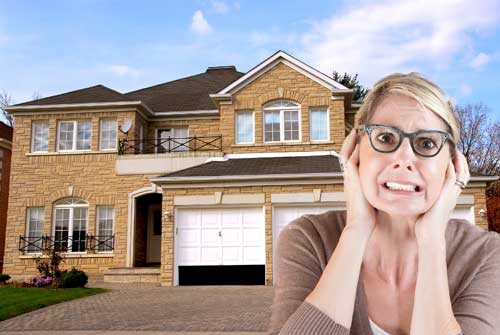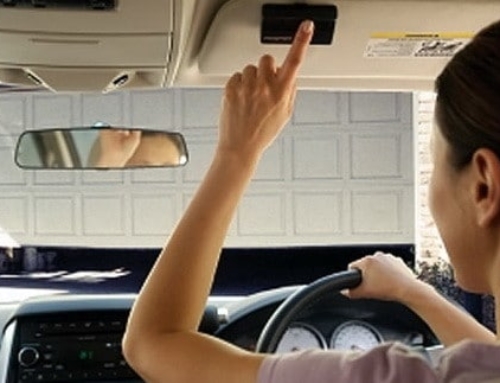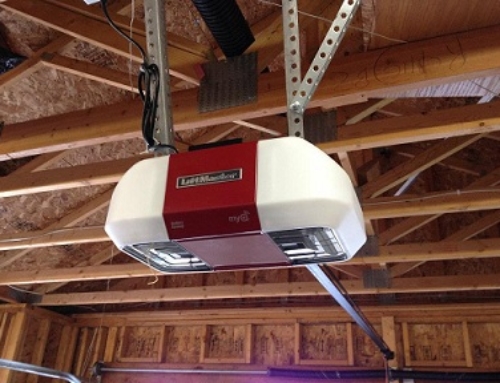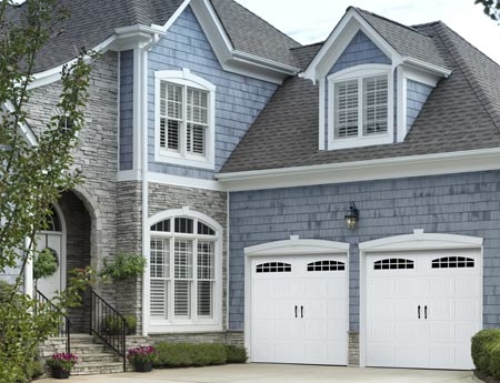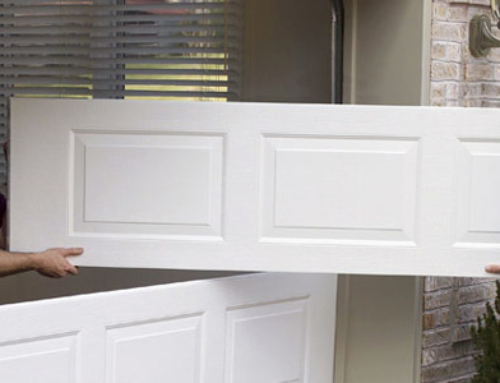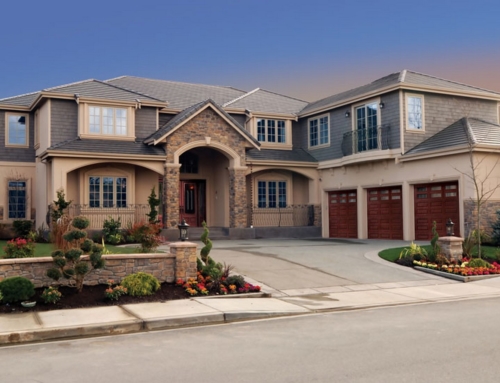As a homeowner, you should understand the immense importance of your garage. Your garage is responsible for keeping your vehicle out of the weather and protecting it from potential thieves and other devious individuals. At the same time, your garage makes it possible to bring in the groceries or get your children inside, without getting soaking wet. Unfortunately, the garage door can be much more complex than you could ever imagine. Plenty of things can go wrong and a noisy garage door is undoubtedly one of the most common problems you will ever face. What is causing the ungodly squeak and how can you rectify the problem, before you lose your sanity? You’ll be able to find out below.
What Can Cause The Garage Door Squeak?
Before you’ll be able to rectify the problem and remove the earplugs, you’ll need to find the source. The truth of the matter is that garage doors utilize an abundance of different elements, including cables, springs and pulleys. Any of these could be the key to stopping the squeak or it might be something else entirely. In order to diagnose and fix the garage door problem and repair it, you’ll need to thoroughly inspect the door. By doing this, you’ll find the source of the problem and will be able to take precise rectifications, which will eliminate the problem at its source.
Consider Garage Door Opener Type
First and foremost, you should realize that there are three basic types of garage door openers. They include screw, belt drive and chain. Although they all serve the same purpose, they work differently and some are louder than others. The chain drive opener tends to be the loudest, but it is beneficial, because it is cheaper and more durable than the alternatives. If you have this type of garage door opener and a squeak is present, you’ll need to properly lubricate the door to fix the problem.
If you want to eliminate the noise all together, you may want to switch to a belt driven system. These systems tend to be the quietest of the three.
Unbalanced
An unbalance garage door can prove to be incredibly problematic for the homeowner. Not only can an unbalance door result in a squeak, but it could also prevent the door from opening all together. The good news is that there is an easy way to test the door’s stability. Simply grab a hold of the emergency cord and open the door. Raise the door halfway and release the cord. A stable door will not budge very much. However, an unbalance door will begin to sink towards the ground.
Springs And Hinges
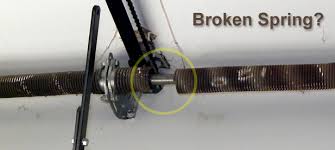 When a garage door is utilized frequently, the springs and hinges will begin to wear out. This can also result in a loud noise, when opening and closing the door. The good news is that replacing the garage door springs is fairly simplistic and most people will be able to make the repair, without the assistance of a professional. However, if the problem stems from the torsion springs, which can be found near the top of the door, you’ll need to contact a repairman.
When a garage door is utilized frequently, the springs and hinges will begin to wear out. This can also result in a loud noise, when opening and closing the door. The good news is that replacing the garage door springs is fairly simplistic and most people will be able to make the repair, without the assistance of a professional. However, if the problem stems from the torsion springs, which can be found near the top of the door, you’ll need to contact a repairman.
Potential Fixes
Once you’ve managed to pinpoint the source of the problem, you’ll want to take corrective measures right away. There are numerous ways to fix a noisy garage door, but the best method will depend on the specific problem that you’re facing. Below, you’ll discover some of the most common and reliable fixes.
Replace Worn Garage Door Rollers
If you hear a loud grinding noise, when your garage closes and opens, it may very well be linked to the worn ball bearings located inside of the roller. While, it may seem nearly impossible to eliminate all of the noises, it is possible to reduce them. Just by replacing the worn rollers, you will be reducing part of the problem, if not all of it. The first that you will need to do is find the part number for this item, which will probably be located on the outer side of the wheel. You may need to order these from the manufacturer, because more often than not, the garage door is probably several years old.
In some cases, the roller will become damaged due to excessive use, which sadly is a normal occurrence. Now, it is possible to lubricate the rollers to eliminate the grinding noise, but this is only a short-term fix, but it will do until you are ready to replace them entirely. The replacement rollers will only cost you around $4.00-10.00 each, which is much less than a new garage door.
Replace Worn Torsion Springs
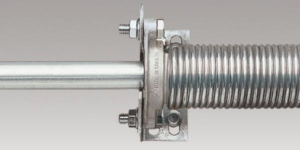 Another common cause of a noisy garage door is worm torsion springs. It is important to note that someone, who is not mechanically inclined, should approach this task, because it can be very dangerous. Always disconnect the electrical source, before disassembling the extension springs, so that the door remains in one position. You may want to place a weight on the door, so that it cannot pop up during the repair.
Another common cause of a noisy garage door is worm torsion springs. It is important to note that someone, who is not mechanically inclined, should approach this task, because it can be very dangerous. Always disconnect the electrical source, before disassembling the extension springs, so that the door remains in one position. You may want to place a weight on the door, so that it cannot pop up during the repair.
Garage Door Silencer
Just because you are dealing with a noisy garage door does not mean that the operational components are damaged. Some garage doors are just noisy, meaning that you will have to deal with it or invest in a garage door silencer. This kit will reduce the noise and vibration that can felt in the rooms above the garage.
Lubrication
Lubrication is undoubtedly one of the most efficient ways to eliminate the noise from your garage door. Although the oil might be a little mess, the process is quick and simple, so you’ll be able to do it yourself. Simply apply spray to all of the garage door’s movable parts and allow the oil to reach the entirety of the springs. Also, make sure you target the rollers and tracks. In general, it is best to lubricate your garage door twice a year.
Switch To Nylon Rollers
Another thing to try is to switch to nylon rollers. Metal rollers are great, but they’re incredibly loud. Not only will this move help you eliminate the noise, but also it’ll save you a lot of time and energy in the future. This is the case, because nylon rollers do not need to be lubricated!

